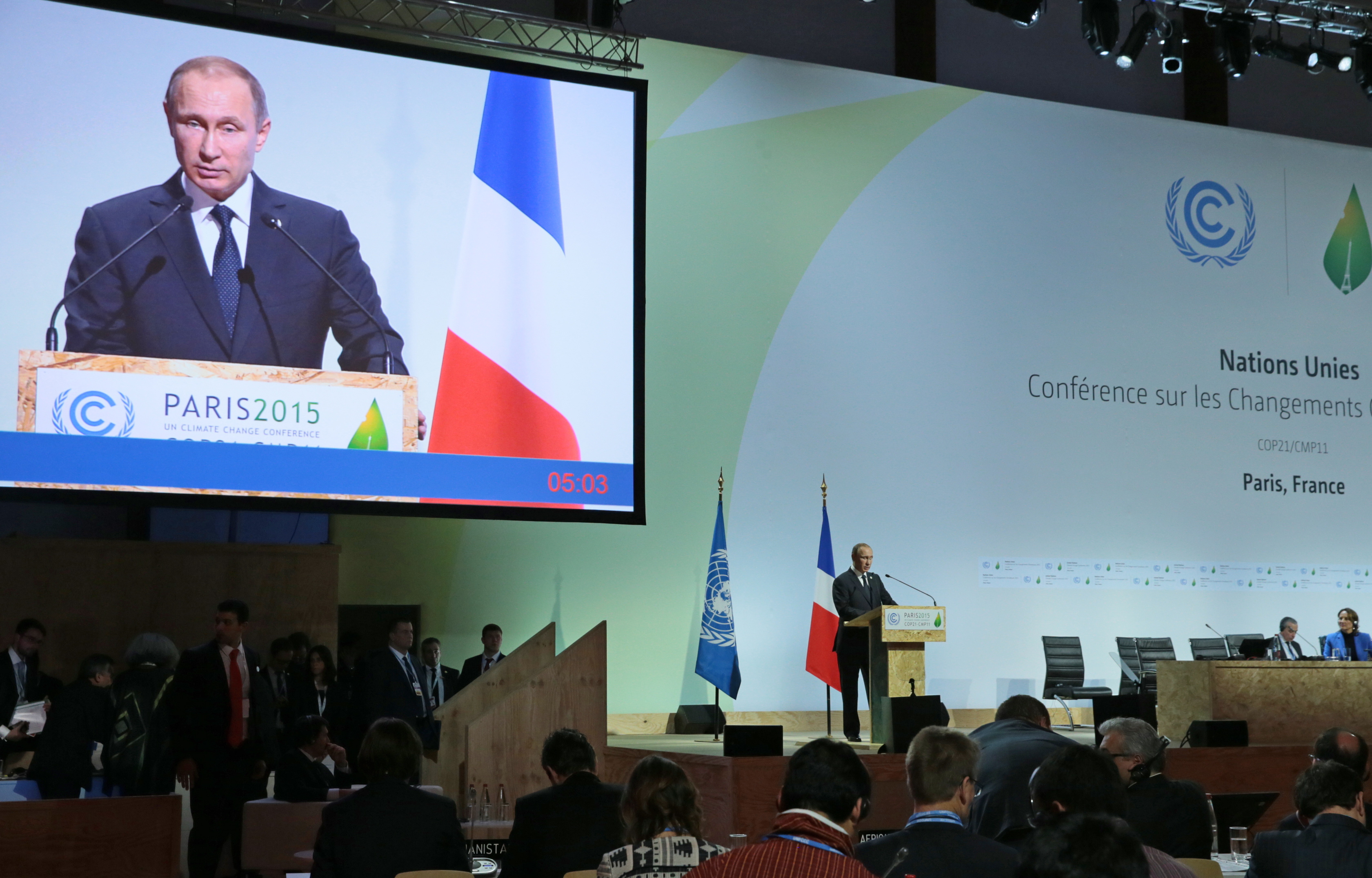ID :
389495
Mon, 11/30/2015 - 16:43
Auther :
Shortlink :
https://oananews.org//node/389495
The shortlink copeid
Putin arrives in Paris to participate in UN Climate Change Conference

PARIS, November 30. /TASS/. Russia’s President Vladimir Putin has arrived in Paris, where he will participate in the UN Climate Change Conference and will have meetings with leaders of several countries.
The president’s press secretary Dmitry Peskov said "after the working day in Paris, most likely rather late by Moscow time, we expect the president will meet with the media."
The goal of the conference is to adopt a new multilateral agreement on climate that will replace the Kyoto Protocol on Climate Change after 2020.
"The Kyoto Protocol embraces only 13% to 14% of the total volume of greenhouse gas emissions and it has stopped playing the role of an efficacious instrument for the solution of climate problems," a Kremlin adviser said in this connection. "But the world doesn’t have any consensus on a post-Kyoto document."
"Russia views the Paris conference as an important international event, the outcome of which will predetermine in many ways the prospects for sustained development of different countries," Putin’s aide Yuri Ushakov said.
He gave the assurances that the Russian side was pressing for adoption of a comprehensive and legally binding agreement at the conference. This agreement was to spell out the efforts of all the countries and primarily the biggest issuers of greenhouse gasses (China, the U.S., the EU, and Russia) and to lay down a solid groundwork for long-term climate regulations. These regulations were be balanced in all the aspects - ecological, economic and political.
Russia and the ten years the new treaty will stay in effect
Russian President’s special envoy for climate problems, Alexander Bedritsky, believes the main guiding element in the process of elaboration of the new agreement should be the "upkeep of the encouraging reserves and experience gained under the auspices of the Kyoto Protocol, as well as elimination of weak points of the current climate regulations."
Also, the signatories are to specify the deadlines for an effective functioning of the agreement and the approaches to the current climate regulation mechanisms.
In addition, the signatory nations are to determine the validity period of the new agreement and the criteria for reviewing the contributions made by the signatory countries.
"We think this period should be durable enough for unfolding the programmes of economic modernization and technology overhauls, and this will require about ten years of a period through to 2030," Bedritsky said in a statement.
"The new agreement should take effect as soon as possible and assure broad participation of the signatory countries," he believes. "From the legal angle of view, main attention should be given to the countries’ obligations and places in the structure of the agreement."
"Climate change is a global problem and that’s why it is important to seek consensus without superimposing the interests of one group of countries in clear detriment to the interests of other groups, on the one hand, and to avoid encroachments on international legal norms and regulations, on the other hand," Bedritsky said. "That’s a key condition for success."
He stressed Russia’s interest in the fruitfulness of the Paris conference, adding that Moscow was eyeing active participation in the future talks in collaboration with all the countries concerned and in the spirit of transparency and collective responsibility.
As for the meetings, Putin may have in Paris, they are three or four: with Germany’s Angela Merkel, Israel’s Benjamin Netanyahu, Peru’ Ollanta Humala and Korea’s Park Geun-hye. A meeting with Turkey’s Recep Erdogan is not on the agenda.
Read more





